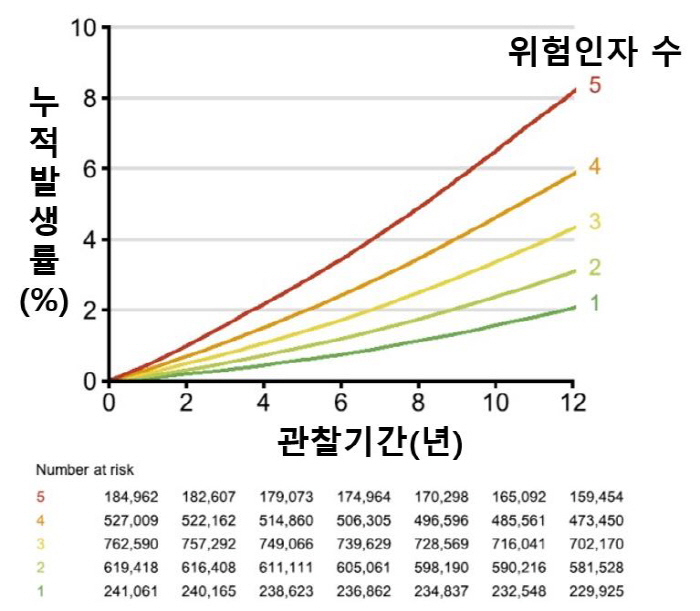When metabolic abnormal fatty liver disease persists, the risk of cardiovascular disease increases by 57%
Mar 27, 2025
|
A research team led by Kim Seung-up of the Department of Gastroenterology at Severance Hospital, Lee Ho-kyu and Lee Hyuk-hee of Yonsei University School of Medicine's preventive medicine class, and Lee Han-ah of the Department of Gastroenterology at Chung-Ang University Hospital said that if fatty liver disease continues, the risk of cardiovascular disease increases by 57%.
The name of nonalcoholic fatty liver disease was recently changed to 'metabolic fatty liver disease'. This is to emphasize the close relationship with metabolic diseases such as obesity, diabetes, and hyperlipidemia. Metabolic fatty liver disease, which about 30% of the Korean population has, is likely to lead to steatohepatitis, liver fibrosis, and cirrhosis, as well as affects cardiovascular disease development.
The research team followed up about 7.3 million people who underwent national health checkups in 2009 for 12 years to determine the presence of metabolic abnormal fatty liver disease, the number of cardiovascular risk factors, and the risk of cardiovascular disease according to these changes.
Cardiovascular risk factors investigated were ▲ overweight (body mass index greater than 23 kg/㎡) or abdominal obesity (waist circumference greater than 90 cm, female greater than 80 cm) ▲ High blood pressure (130/85 mmHg or above or under treatment) ▲ High blood sugar levels (more than 100 mg/dL or under treatment) ▲ Low HDL cholesterol levels (less than 40 mg/dL for men and less than 50 mg/dL for women or under treatment) ▲ High triglyceride levels (more than 150 mg/dL or under treatment) were classified as abnormal fatty liver disease when fatty liver patients had at least one of these risk factors.
If metabolic abnormal fatty liver disease persists or occurs anew, the risk of cardiovascular disease was 57% and 28%, respectively, higher than those without the disease. Conversely, improving metabolic abnormal fatty liver disease reduced the risk of cardiovascular disease by 16% compared to the case where the disease persisted.
In addition, five cardiovascular risk factors possessed by patients with metabolic abnormal fatty liver disease had twice the risk of developing cardiovascular disease than one. Continuing to maintain five risk factors increased the risk of cardiovascular disease by 2.6 times.
Professor Kim Seung-up said, "This study is significant in that it analyzed the long-term effects of metabolic abnormal fatty liver disease and changes in cardiovascular risk factors on cardiovascular disease occurrence. "Quantitative and continuous evaluation of the number of risk factors for cardiovascular disease is important in predicting cardiovascular risk and establishing customized management strategies for patients with metabolic abnormal fatty liver disease." The findings were published in the international journal 『American Journal of Gastroenterology』 (IF 10.4).
|
This article was translated by Naver AI translator.















